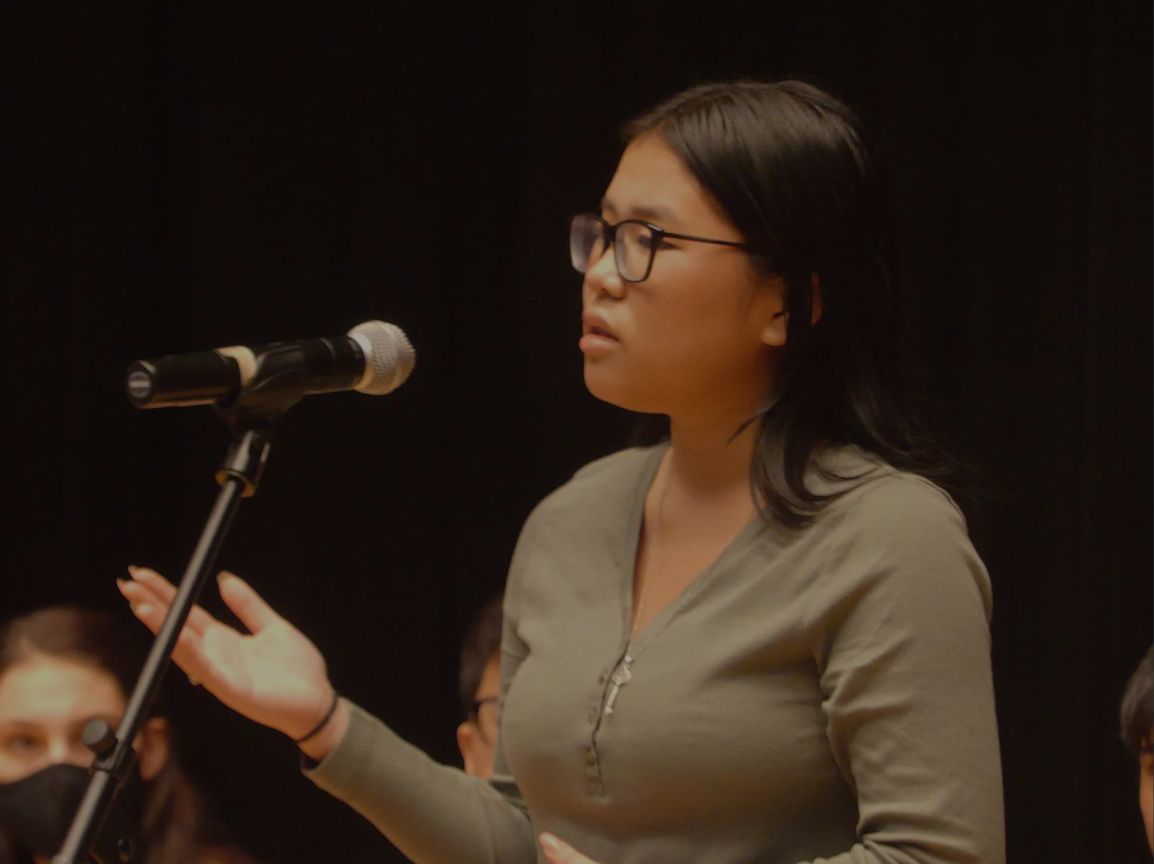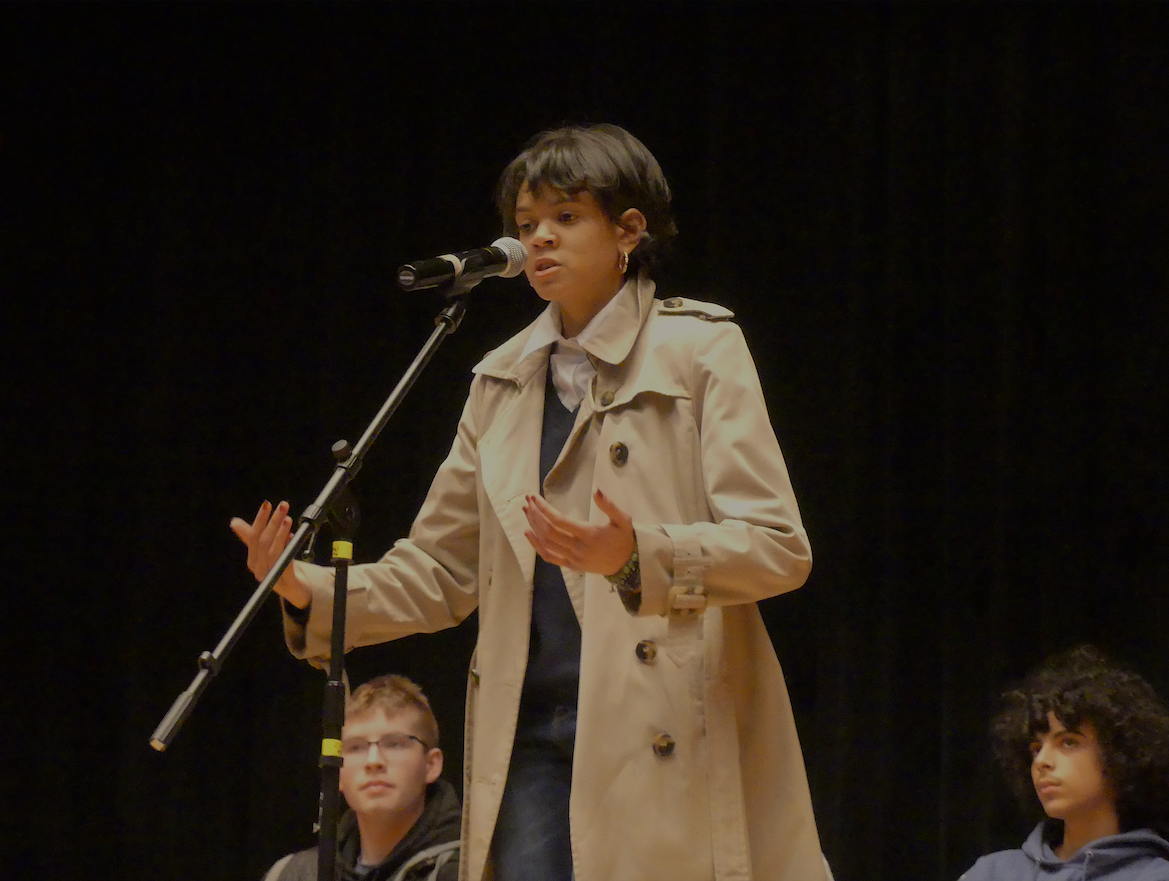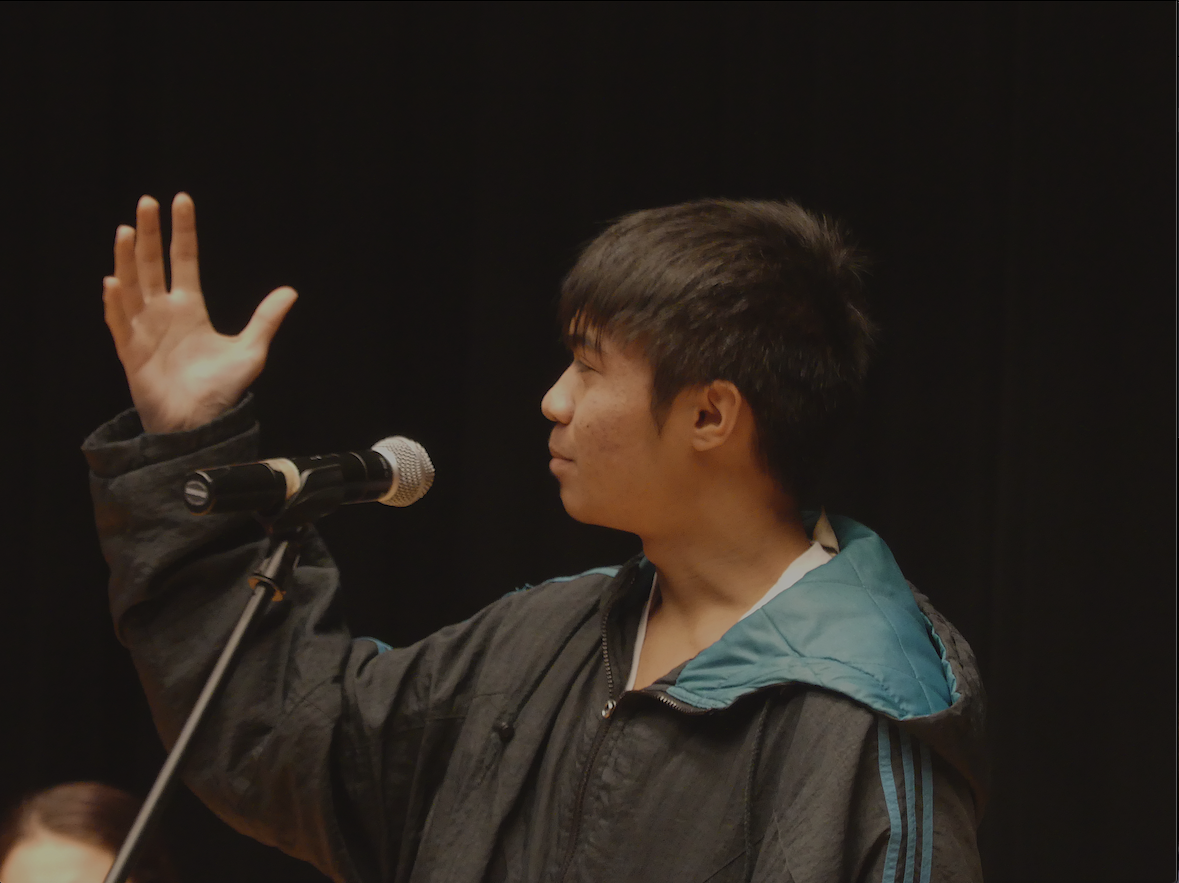
Gabriela Parini Cordova contributed to this article.
Poetry Out Loud is a contest where students recite a poem of their choice found within the competition’s official website. This contest allows students in grades nine through twelve to first perform within their English class and then, if they win, to move on to the semi-finals, where two winners will then be chosen from each class period. This escalates until the winner of the finals moves on to the state and possibly national finals. The national finals consist of three rounds of competition, each requiring the students to recite one poem that they must stick with throughout the entire later part of the competition, as well as some additional ones with stricter criteria.
Although other schools may differ their practices, Malden High School takes the first place winners from every English class in the same period and holds the competition for semi-finals in the auditorium. The classmates of the winners and teachers attended to show support for their class winner. Each contestant performed the poem they had previously memorized. While some were happy to just make it to the semifinals, some saw the opportunity to improve their performance. Although it may be nerve racking for most at first, others saw it as a second chance at surpassing their initial performance.

Schools all around the nation participate in this competition, and many students and teachers prepare for it differently. Sophomore Yanni Genene said she could recite her poem to the very last minute of the competition before her class, which she found very helpful. “I chose [a short poem] because I knew I would not be able to memorize anything longer,” adding, “but my teacher prepared us well by giving us time. When I performed, everything went well, thankfully!”
How teachers chose to prepare their students for the competition also varies and will determine how the students present themselves. Although many memorization tactics can work for different types of students, most students seem to favor the station work that some teachers assigned. These stations consist of all types of ways to memorize a poem and help participants better understand their poem so they can execute when it’s their time to perform.

One of these stations is to have a printed out copy of a poem to mark up where a stanza starts, ends, and pauses to add dramatic effect to the presentation of the poem. With this same copy, students were challenged to read to a partner with and without it until they memorized it. One station which most teachers found the most helpful was writing the poem on a blank sheet of paper twice, as it is said writing something multiple times helps with memory. Most teachers also had students use the “Tips on Reciting” videos that are on the Poetry Out Loud website.
Jennifer Clapp, an English teacher at Malden High, said, “I do think it’s really important to have that experience of getting up in front of other people because that’s a lifetime experience you’re going to have to do that lots of different times in your life and the only way we get less anxious about that stuff is by doing it. So if you never do it, you never get less anxious about it, and it’s always going to be a big deal.”
Clapp added that she finds memorization to help and uses the strategy of stopping, looking at the poem, reciting it part by part, and finding the meaning of the poem. She stressed that students think about the tone and how to reflect that through their bodies and voices. They also watch slam poetry and find techniques they could use. She said that “the more prepared you are, the less anxious you are” to help motivate nervous students and that with practice they have no reason to be nervous or scared.

Leanne Derosa, another English teacher at Malden High, added, “I think just performing and making yourself vulnerable to people is a really important skill and something I love to keep practicing.”
English teacher Anne Mooney offered a different opinion: “I think that the pandemic has made it really difficult for students to even just speak within small groups, and I think that Poetry Out Loud is quite jarring.”
She added, “I think it would be a great idea to spend a little more focus on getting students talking about literature and writing.”
When it comes down to picking a winner, Mooney said that “the biggest thing is understanding the poem, because you could do a great performance with a ton of emotion, but if you misunderstood the poem, then it doesn’t really matter because your emotions are misplaced.”


LEFT: Kisten Karanja standing at the microphone, waiting to begin. RIGHT: Multiple contestants stand on stage.
It takes a lot of courage for one to go up and perform, but even having checked all of the criteria it can come down to the audience. Mooney noticed that, “unfortunately, not all of the audience members have that piece of empathy, so there were certain times where I felt students were on their phones or not paying attention.”
Notably, different students focused on one criteria and ones that incorporated everything. All in all, the contest went well, and it took a lot for these students to not only top their class, but also move on to the next level of competition.




